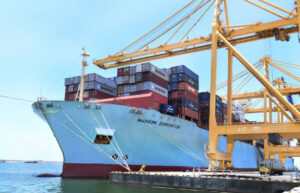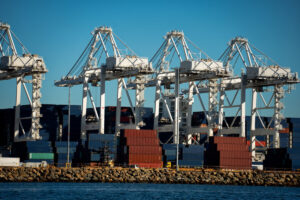The Digital Container Shipping Association (DCSA) in conjunction with its nine member carriers has announced phase two of its electronic bill of lading (eBL) platform interoperability proof of concept (PoC).
According to the DCSA, the fully interoperable eBL will enable shippers and beneficial cargo owners (BCOs) to choose an eBL provider based on service levels and capabilities, while maintaining the ability to exchange electronic documentation with carriers, banks and other parties that may use different platforms.
The PoC will be conducted in conjunction with CargoX, edoxOnline, essDOCS and WAVE BL. The companies will implement DCSA eBL Interoperability Standards to test eBL interoperability through the full bill of lading lifecycle using data that mirrors a live shipment.
The new eBL interoperability PoC leverages DCSA eBL Interoperability Standards 1.0 – Beta 1. Upon completion of the PoC, DCSA eBL Interoperability Standards 1.0 will be officially released and free to download for any platform provider to incorporate into their eBL solutions to ensure interoperability with DCSA standards-based eBLs.
Phase one of the PoC was completed in May 2022. The standards and PoC design were adjusted for phase two based on phase one participant feedback.
Completion of phase two is expected before the end of 2022 and will ensure full technological interoperability between participating eBL platforms, said DCSA.
In addition, the company said it is working to address the legal framework needed between solution providers to enable cross-platform eBL transfer.
READ: Harnessing the power of data to address supply chain challenges
“For the global supply chain, fully interoperable eBL is a starting point for digital trade. It will make today’s practices more efficient, reliable and sustainable, but ultimately it will provide a foundation for further digitalisation,” said Thomas Bagge, CEO of DCSA.
“Actors in global supply chains want to be able to choose the best platform for their needs. For service providers, it will remove barriers to adoption and create an operational foundation that fosters innovation and collaboration.
“According to our year-end 2021 research, less than 1.2 per cent of all bills of lading was electronic. We urge all industry stakeholders to get involved and be part of the movement to work towards 100 per cent eBL adoption.”
The release includes interface standards and messaging API specifications for 110 trade-agnostic event timestamps, enabling the full cycle of planning for all nautical services including pilotage, towage, mooring and other vessel services.









